Hello everyone, I am a reader. Follow me and I will take you into a different world of culture and history.
The previous lecture talked about the Qin Dynasty envoy who met a mountain ghost on the way and was entrusted to deliver a piece of jade to Gao Chijun. He also received a mysterious prophecy that "the ancestor dragon will die this year". How should these messages from the world of ghosts and gods be deciphered? Woolen cloth?
Mysterious Man
Strictly speaking, no one can make a reliable decipherment, because all the information is just scattered fragments and cannot be connected to a logical chain. Therefore, this matter can become a case of communication and , because in any case of this kind, there will definitely be additions and leaves in the process of communication, and all the missing links will be completed. Therefore, in an annotation written by Prince Huai of the Tang Dynasty chapter for the "Book of the Later Han Dynasty", he quoted a passage from "The Legend of the Spring and Autumn Annals", making it look like a fantasy-themed micro-novel .

In the story, the envoy of the Qin Dynasty became famous, named Zheng Rong. The mysterious man also has an appearance, "a plain chariot and a white horse." We know that the Qin Dynasty adhered to the Five Virtues theory, advocating black among all colors, and the mysterious man chose all white. Moreover, white is the color of mourning clothes. When Prince Dan bid farewell to Jing Ke in Yishui, it was exactly It was "all the people were dressed like snow". Later, the Qin Dynasty fell and Ziying surrendered, and his image was also "plain chariot and white horse".
The mysterious man with plain carriage and white horse came to greet the messenger Zheng Rong: "Where are you going?"
Zheng Rong replied: "I am going to Xianyang."
The mysterious man announced his identity and said: "I am the king of Huashan. Messenger, I would like to ask you to deliver a letter to Mr. Gaochi. When you arrive in Xianyang and pass by Gaochi, you will see a large catalpa tree. There is a stone with a special texture under the tree. You just need to pick up the stone. Knock a stone on the tree trunk, and someone will answer. Just give him the letter. Don't open the letter privately. As long as you deliver the letter properly, you will be richly rewarded. "
When Zheng Rong came to Gaochi. , found the catalpa tree, knocked on the trunk, and heard someone answer. Then, as if in a dream, Zheng Rong saw a magnificent palace in front of him, and someone came out and took away the letter. After a while, Zheng Rong heard a voice inside the palace saying: "The ancestor dragon is dead."

The story is told vividly and has good suspense design. Huashanjun's envoy warned Zheng Rong not to open the letter privately, which aroused the readers' curiosity and wanted to know the content of the letter. Zheng Rong completed the task as required, the letter was taken away, and the content of the letter seemed to have become a mystery. Just when the reader felt a little disappointed, the plot suddenly took a turn. The recipient read out the content of the letter, which happened to be overheard by Zheng Rong, who was still outside the palace.
We infer from the names that Huashan Jun should be the mountain god of Huashan, and Gaochi Jun should be the water god of Gaochi. Both Huashan and Gaochi are not far from Xianyang. It seems that the local ghosts and gods are communicating an important message: Zulong is about to die. .
Who is Zulong? Judging from the records in "Historical Records", Qin Shihuang obviously realized that Zulong might refer to himself, but was unwilling to admit it, so he reluctantly interpreted Zulong as the ancestor of human beings. It is estimated that the explanation that Qin Shihuang was most worried about was this: "Ancestor" refers to the founder of the country. As for "Dragon", the Qin Dynasty belonged to the water virtue in the theory of the Five Virtues. When Qin Duke Wen went hunting 500 years ago, water virtue A black dragon appeared in it, which is the auspiciousness of Shui De, so the "ancestral dragon" means that he is right.
The evolution of dragon
When we read this record today, we will feel that since "ancestral dragon" has the word "dragon", it naturally refers to the emperor. However, at that time, there was no such thing as the "true dragon emperor". Although the dragon was regarded as a creature with great magical powers, its status was far from being lofty. As mentioned before, ancient Chinese court attire had a set of prescribed patterns, collectively known as the Twelve Huazhang. There were a total of 6 patterns on the tops. The order from high to low was sun, moon, star, mountain, dragon, and Chinese insect. Dragon only ranked third. five.
Until the Song Dynasty , senior officials could still use dragon patterns, so Wang Anshi also encountered an "ancestral dragon" incident. What happened was this: a year before Wang Anshi passed away, one early morning, the gatekeeper saw a boy delivering a poplar wat board wrapped in green cloth. After Wang Anshi saw the wat board , he was very unhappy and threw it under the wall. There are five words written on the tablet: "The ancestor dragon will die next year."

Obviously, the ancestor dragon here refers to Wang Anshi. Wang Anshi himself understood this meaning, so he was furious.
This incident comes from the Song Dynasty notebook novel "Sun Gong Talks about the Garden", which was dictated by Sun Sheng and recorded in writing by Liu Yanshi. Sun Sheng was a Jinshi in the Yingzong Dynasty of the Song Dynasty. He stood on the side of the old party in the party disputes in the Northern Song Dynasty and was persecuted by the new party. Therefore, he often spoke ill of Wang Anshi in "Sun Gong Tan Po". The story that Wang Anshi received a death prophecy may be just a rumor spread by people in the old party, but the details reflected in the story are not bad. The "ancestral dragon" does not correspond to the emperor of the dynasty, but to Wang Anshi. People in the Song Dynasty did not think that There's nothing strange about this.
Speaking of which, when Qin Shihuang realized that the mountain ghost had predicted his death, he explained to himself that the mountain ghost could only predict events of that year. There was actually a mystery here. It had already entered autumn, and the Qin Dynasty used October as the beginning of the year, which meant that one year was about to end and next year would soon be here. Qin Shihuang believed that as long as he could survive until next year, the death prophecy would naturally become invalid.
Immigration
Of course, to be on the safe side, it is better to have a divination. The conclusion of divination is "good luck in traveling". Literally, it seems to be suggesting that Qin Shihuang do two things: one is to patrol, and the other is to migrate.
moved 30,000 families to Yuzhong, Hebei Province and was awarded a first-level title.
Qin Shihuang really complied with the request, and immediately started his fifth and final tour the next year. In the last days of the year, he launched a large-scale migration activity. This is the " Zi Zhitong" It is recorded in "Jian " that "30,000 families moved to Yuzhong, Hebei Province and were given a first-level title."

This historical material comes from "Historical Records: The Chronicles of the First Emperor of Qin", but "Zizhi Tongjian" copied a wrong word and wrote "Beihe" instead of "Hebei". Hu Sansheng did not notice this transcription error when he was annotating "Zi Zhi Tong Jian". He explained "Hebei" as "north of the North River". The so-called "Hebei Yuzhong" is generally the upper reaches of the Yellow River located in Due north of Xianyang. It is easy for people to misunderstand this sentence, thinking that the residents of Beihe and Yuzhong were moved to other places. In fact, it is exactly the opposite. You can refer to the "Historical Records: Chronology of the Six Kingdoms": "The people were moved to Beihe and Yuzhong." middle". Qin Shihuang should have moved 30,000 households in the interior to the area bordering the Xiongnu in the north. This kind of thing is of course very hateful. Probably to compensate these immigrants, he gave them a first-level title as a whole.
Lament of Destiny
In 2009, Peking University collected a batch of Western Han bamboo slips returned from overseas. One of them was " Zhao Zhengshu ". The opening chapter tells that Qin Shihuang fell seriously ill during his last tour, so he lamented. Sighing, is destiny really unchangeable? I already know that I am going to die this year, but I don’t know the specific month and day, so I travel around the world, hoping to change my fortune and destiny, but it seems that I can’t change it. This paragraph of
can be perfectly matched with the prophecy of Zulong. It shows that whether Qin Shihuang carried out the great migration of the people or the last parade, it was all for the purpose of trying hard to see if he could reverse his fate. Since these contents are most likely just the words of a novelist, we might as well use another novel - "Popular Romance of the Former Han Dynasty" by Cai Dongfan, a literati of the Republic of China - to understand Qin Shihuang's psychological activities at that time. It is said that after the divination obtained "good luck in traveling": " The First Emperor thought to himself, I can travel but not migrate, and the people can migrate but cannot travel. It is better for me to travel and the people migrate. If both sides work together, we can seek good luck and avoid disaster. But he is afraid of the mountain. The ghost said, I should die this year. If I go out for a trip, I will be plotted by others. I will relocate my people during the year and travel outside the year, so I will have no worries.

Then an edict was issued, ordering 30,000 families from the mainland to be moved to Yuzhong, Hebei Province. There was no accident for the people, but they had to leave their hometowns, support the old and the young, and travel hard. This unfortunate situation was really unexpected, so they had no choice but to swallow their hatred and emigrate according to the order. "
"Thirty thousand families moved to Yuzhong, Beihe" should be a historical fact at that time. If we adopt an atheistic stance, we can only speculate that this population migration was to enrich the population in the border areas and consolidate the defense line of the Great Wall, or like Sima Guang Like , it only retains the facts, does not speculate on the reasons, and directly deletes the original causal relationship. But perhaps there were indeed ominous rumors circulating at that time, so on the third day of the next year, Qin Shihuang was busy traveling. Go.
This is the last tour of Qin Shihuang, and it is also an unfinished tour. We will talk about it next time.
Welcome to follow, like, comment, and forward!
See you in the next issue!

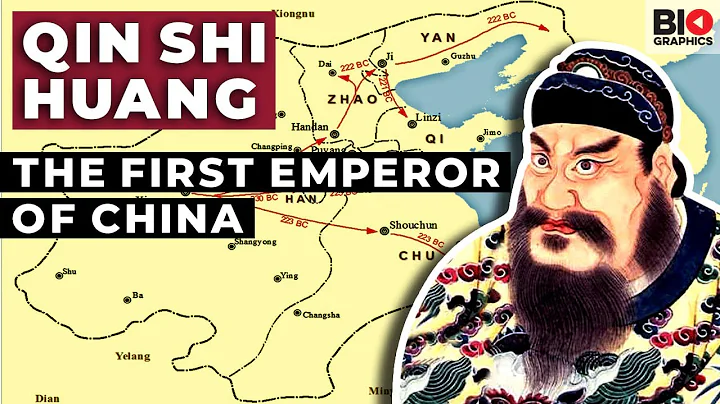
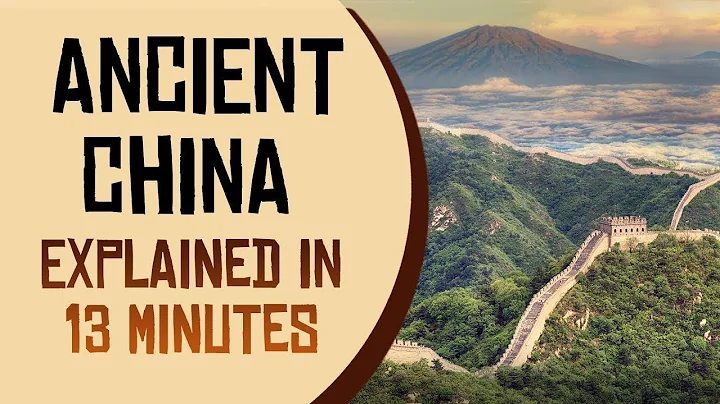


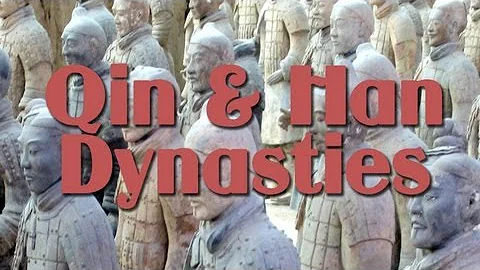



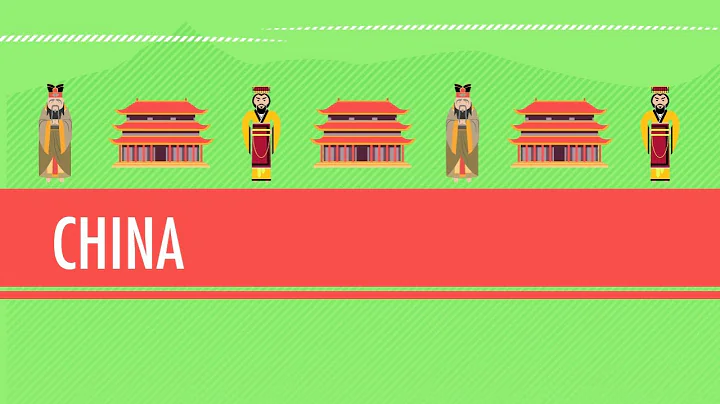





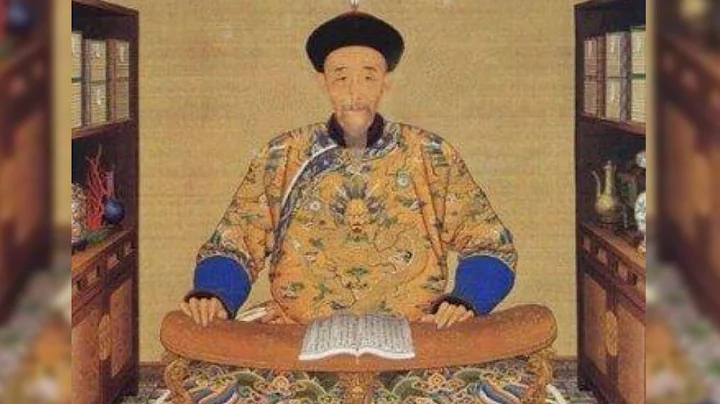


![[Eng Sub] Kangxi Dynasty EP.01 Prince Xuanye wins first place in exam but unluckily catches smallpox - DayDayNews](https://i.ytimg.com/vi/HPtwmzuhVA4/hq720.jpg?sqp=-oaymwEcCNAFEJQDSFXyq4qpAw4IARUAAIhCGAFwAcABBg==&rs=AOn4CLCR_-ZC8HmzMKyx8zk0YaDVI-OHLQ)

